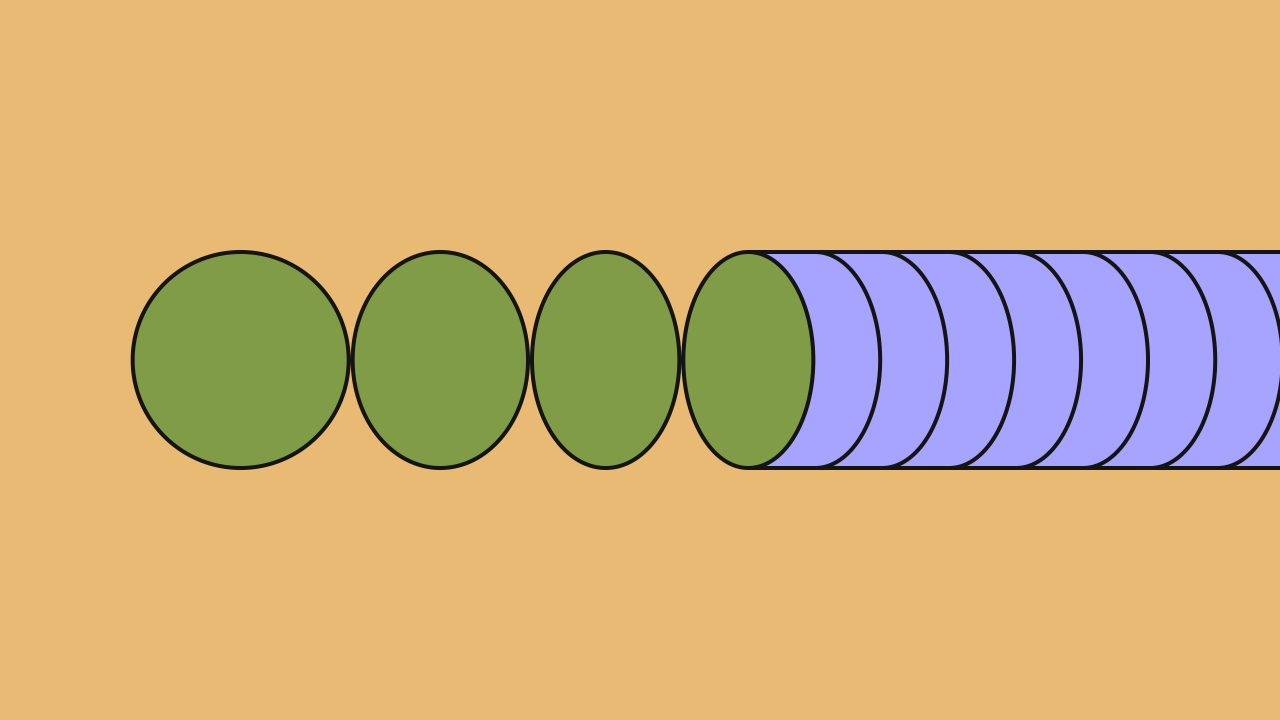Should we end research projects?

The light at the end of the tunnel.
Published
31 October 2023
Content
Creative
Are research projects an outdated model? Should researchers focus on operations instead? Is continuous research the way of the future? Janelle Ward asked the community, and they delivered.
Collaboration between product and research is an ongoing discussion, which often centers on the distinction (and the debate) between research as a tool and research as a role.
The good news: research as a tool is valued in organizations.
The not-so-good news: research as a role is still struggling to find its best manifestation. What can researchers—professionals who have made research their occupation and built their careers around this role—do to thrive in organizations?
Lately, I’ve been exploring possibilities to rethink the research role in organizations. A caveat: As with much of my writing, this is a thought experiment. It’s meant to pull the discussion out of its usual directions and consider new possibilities.
With this in mind, I posted: What if “research projects” ceased to exist? And researchers instead focused on building operations?

Let’s start with definitions
What is “research”? What is a “project”? Fabian Boehm dives in by pointing out the most obvious thing we haven’t agreed on: definitions. He says, “I like that you put both ‘research’ and ‘project’ in quotation marks because there is no ubiquitous definition within our industry, a sector, an organization, or often even a team.”

What is “research”? What is a “project”? Fabian Boehm dives in by pointing out the most obvious thing we haven’t agreed on: definitions.
“Research” is an easy one for researchers. That’s our expertise, and we have clearly defined guidelines for what constitutes research. For what, in our view, is rigorous and well-scoped enough to be defined as research?
But can we say we agree with everyone in our field? Or what if the definition of research is not agreed on within our organization? Or if other professionals in our organization are conducting activities similar to research that don’t meet our definition?
And what about “project”—surely, that’s also defined differently from person to person and within organizations. For example, would a PMP-certified project manager approve of how we run our research projects?

The purpose of this article is not to propose definitions. It does aim to point out what Fabian also points out—that we don’t agree on these things. Perhaps within our field, we do, but certainly not with our stakeholders. That’s probably a good place to start.
Let’s come back to the rest of Fabian’s comment later. There’s a more explicit question in the post: Leaving aside our definition of “project,” is taking a research-operations-first approach the way to go?
Could ops-first work in some organizations? It depends
In my post, I questioned research’s “project-first” orientation. And in typical researcher fashion, Elisa Maira replied, “It depends.”
Elisa focuses on an organization’s structure, looking at where an ops-first approach could work.
“For example, in an organization where research activities are rather democratized, there is research buy-in, maybe a very small research team, and a willingness to establish both the research team and the craft, it might make more sense for research to focus on an “ops-first” approach, which will benefit the research team too once it grows.”
Operations first is a possibility, but then research must already be highly valued in an organization. This makes sense: Establishing research operations is costly and time-consuming, but everyone—including the research team—could benefit.

In theory, it might sound promising, but we know it’s not that simple. A fundamental shift from project to operations-focused work is probably not the future of the field, especially since the complex question of research buy-in is still present. What else can we consider? My network had a couple of ideas—let’s start with shared project ownership.
Shared project ownership
What about ownership of the project? I asked whether the “project” belongs to research in my post. Think about your last research project. What was the goal of the project, and which internal stakeholder(s) were most impacted by the insights? Why wasn’t it their project? On their roadmap? Is our declared ownership (even if shared) hurting collaboration?
Rather than handing off ownership to other functions, as I implied in my post, Elisa advocates for shared ownership in a project-oriented setting:
“In such a setting, a project approach can come later, when there are more research hands, and I would say ownership should be as much as possible shared…it can (and should) coexist with a solid continuous research practice, in order to accommodate the rhythm of innovation, which should ideally be decoupled from a project mindset.”

hat was the goal of the project, and which internal stakeholder(s) were most impacted by the insights? Why wasn’t it their project? On their roadmap?
Project ownership is an issue Fabian also addresses:
“UX Researchers…can provide value more effectively and show value easier in a product-based delivery mechanism rather than project-based delivery mechanism.”
Fabian argues that domain knowledge comes through exposure to a product-based environment. This knowledge could be key to building trusting relationships between research and product.
Research operations facilitate nimble and continuous research, potentially speeding up research processes and making them more efficient. But let’s take it a step further. Let’s embrace a collaborative future. What if we moved entirely to a product-centric approach, led by product?
A product-led approach
Here’s the proposal: Shift towards a product-led approach to research and development, where cross-functional teams are organized around specific products. Maryse Meinen details this in her comment:
“What if we moved to a product-led, focused structure? One builds ‘cradle to cradle’ teams around products, including expertise like research development and operations. These truly cross-functional teams could research, innovate, build AND maintain sustainable products…”

Product led: I know this will send a shiver down many a researcher’s spine. Researchers often want to be autonomous. For good reason—if we can’t actively exercise our expertise, we feel disempowered and unable to perform our role to the best of our ability.
But can this work? I asked Maryse to elaborate on whether she’d seen it succeed. “If you see every timebox as an opportunity to research, discover, and experiment, together you can. Good product development should, imho, mean ‘continuous discovery’,” she replied.

Here’s the proposal: Shift towards a product-led approach to research and development, where cross-functional teams are organized around specific products.
Putting on my researcher hat, I can think of another ingredient that must be present for this to work: Trust. Researchers will need to feel they can trust their cross-functional team—just as that team will need to trust them.
The good news: We all want research to succeed, but we need to consider the circumstances under which we are comfortable with it evolving. This might mean letting go of long-held ideas about research’s and researcher’s role in an organization.
Subscribe to Outlier
Juicy, inspiring content for product-obsessed people. Brought to you by Dovetail.